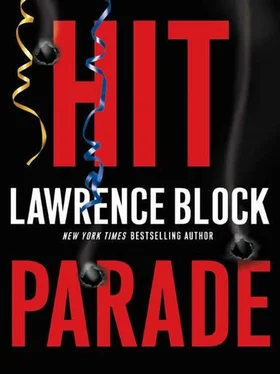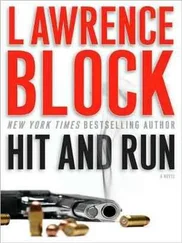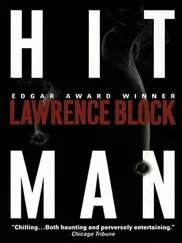“So how’d you do out there today?” someone asked him, and Keller had his reply all ready.
“You know,” he said thoughtfully, “it’s a hell of a thing. You can hack away like a man trying to beat a ball to death with a stick, and then you hit one shot that’s so sweet and true that it makes you feel good about the whole day.”
He couldn’t even remember when or where he’d heard that, but it evidently rang true with his dinner companions. They all nodded solemnly, and then someone changed the subject and said something disparaging about Democrats, and it was Keller’s turn to nod in agreement.
Nothing to it.
“So we’ll go outtomorrow morning,” Monty said to Felix. “Dave, if you want to join us…”
Keller pressed his wrists together, said, “What time?” When the laughter died down he said, “I wish I could, Monty. I’m afraid tomorrow’s out. Another time, though.”
“You could takea lesson,” Dot said. “Isn’t there a club pro? Doesn’t he give lessons?”
“There is,” he said, “and I suppose he does, but why would I want to take one?”
“So you could get out there and play golf. Protective coloration and all.”
“If anyone sees me swinging a golf club,” he said, “with or without a lesson, they’ll wonder what the hell I’m doing here. But this way they just figure I fit in a round earlier in the day. Anyway, I don’t want to spend too much time around the clubhouse. Mostly I get the hell out of here and go for drives.”
“On the driving range?”
“Out in the desert,” he said.
“You just ride around and look at the cactus.”
“There’s a lot of it to look at,” he said, “although they have a problem with poachers.”
“You’re kidding.”
“No,” he said, and explained how the cacti were protected, but criminals dug them up and sold them to florists.
“Cactus rustlers,” Dot said. “That’s the damnedest thing I ever heard of. I guess they have to be careful of the spines.”
“I suppose so.”
“Serve them right if they get stuck. You just drive around, huh?”
“And think things out.”
“Well, that’s nice. But you don’t want to lose sight of the reason you moved in there in the first place.”
“I won’t.”
“Besides,” she said, “I miss you. I got this phone call.”
“Oh?”
“It was sort of weird. Well, atypical, anyway. I don’t know who it was from, or why he called.”
“Maybe it was a wrong number.”
“No, it wasn’t that. The hell with it. If you were here we could talk about it, but not over the phone.”
He stayed awayfrom the clubhouse the next day, and the day after. Then, on a Tuesday afternoon, he got in his car and drove around, staying within the friendly confines of Sundowner. He passed the Lattimore house and wondered if Mitzi Prentice had shown it to anyone lately. He drove past William Egmont’s house, which looked to be pretty much the same model as the Sundstrom place. Egmont’s Cadillac was parked in the carport, but the man owned his own golf cart, and Keller couldn’t see it there. He’d probably motored over to the first tee on his cart, and might be out there now, taking big divots, slicing balls deep into the rough.
Keller went home, parked his Toyota in the Sundstrom carport. He’d worried, after taking the house for two weeks, that Mitzi would call all the time, or, worse, start turning up without calling first. But in fact he hadn’t heard a word from her, for which he’d been deeply grateful, and now he found himself thinking about calling her, at work or at home, and figuring out a place to meet. Not at his place, because of the masks, and not at her place, because of her daughter, and-
That settled it. If he was starting to think like that, well, it was time he got on with it. Or the next thing you knew he’d be taking golf lessons, and buying the Lattimore house, and trading in the stuffed dog for a real one.
He went outside. The afternoon had already begun fading into early evening, and it seemed to Keller that the darkness came quicker here than it did in New York. That stood to reason, it was a good deal closer to the equator, and that would account for it. Someone had explained why to him once, and he’d understood it at the time, but now all that remained was the fact: the farther you were from the equator, the more extended twilight became.
In any event, the golfers were through for the day. He took a walk along the edge of the golf course, and passed Egmont’s house. The car was still there, and the golf cart was not. He walked on for a while, then turned around and headed toward the house again, coming from the other direction, and saw someone gliding along on a motorized golf cart. Was it Egmont, on his way home? No, as the cart came closer he saw that the rider was thinner than Keller’s quarry, and had a fuller head of hair. And the cart turned off before it reached Egmont’s house, which pretty much cinched things.
Besides, he was soon to discover, Egmont had already returned. His cart was parked in the carport, alongside his car, and the bag of golf clubs was slung over the back of the cart. Something about that last touch reminded Keller of a song, though he couldn’t pin down the song or figure out how it hooked up to the golf cart. Something mournful, something with bagpipes, but Keller couldn’t put his finger on it.
There were lights on in Egmont’s house. Was he alone? Had he brought someone home with him?
One easy way to find out. He walked up the path to the front door, poked the doorbell. He heard it ring, then didn’t hear anything and considered ringing it again. First he tried the door, and found it locked, which was no great surprise, and then he heard footsteps, but just barely, as if someone was walking lightly on deep carpet. And then the door opened a few inches until the chain stopped it, and William Wallis Egmont looked out at him, a puzzled expression on his face.
“Mr. Egmont?”
“Yes?”
“My name’s Miller,” he said. “David Miller. I’m staying just over the hill, I’m renting the Sundstrom house for a couple of weeks…”
“Oh, of course,” Egmont said, visibly relaxing. “Of course, Mr. Miller. Someone was mentioning you just the other day. And I do believe I’ve seen you around the club. And out on the course, if I’m not mistaken.”
It was a mistake Keller saw no need to correct. “You probably have,” he said. “I’m out there every chance I get.”
“As am I, sir. I played today, and I expect to play tomorrow.”
Keller pressed his wrists together, said, “What time?”
“Oh, very good,” Egmont said. “‘What time?’ That’s a golfer for you, isn’t it? Now how can I help you?”
“It’s delicate,” Keller said. “Do you suppose I could come in for a moment?”
“Well, I don’t see why not,” Egmont said, and slipped the chain lock to let him in.
The keypadfor the burglar alarm was mounted on the wall, just to the right of the front door. Immediately adjacent to it was a sheet of paper headed HOW TO SET THE BURGLAR ALARM with the instructions printed by hand in block capitals large enough to be read easily by elderly eyes. Keller read the directions, followed them, and let himself out of Egmont’s house. A few minutes later he was back in his own house-the Sundstrom house. He made himself a cup of coffee in the Sundstrom kitchen and sat with it in the Sundstrom living room, and while it cooled he let himself remember the last moments of William Wallis Egmont.
He practiced the exercises that were automatic for him by now, turning the images that came to mind from color to black and white, then watching them fade to gray, willing them farther and farther away so that they grew smaller and smaller until they were vanishing pinpoints, gray dots on a gray field, disappearing into the distance, swallowed up by the past.
Читать дальше












